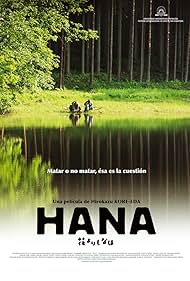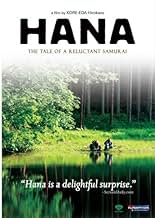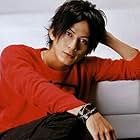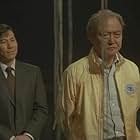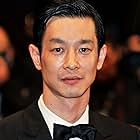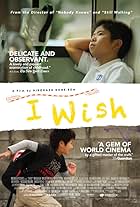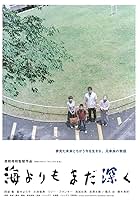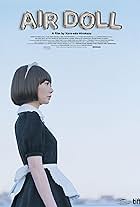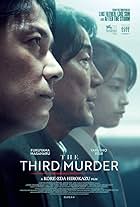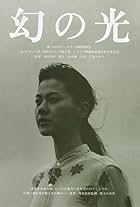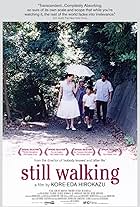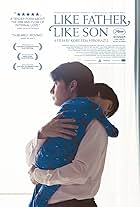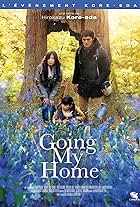IMDb RATING
6.6/10
1.9K
YOUR RATING
A troubled young samurai seeks revenge for the death of his father.A troubled young samurai seeks revenge for the death of his father.A troubled young samurai seeks revenge for the death of his father.
- Awards
- 1 win & 2 nominations
Photos
Christopher Bevins
- Jubei
- (English version)
- (voice)
- …
Majken Bullard
- Shinnosuke
- (English version)
- (voice)
- Director
- Writer
- All cast & crew
- Production, box office & more at IMDbPro
Storyline
Did you know
- TriviaThe fourth film directed by Hirokazu Koreeda to feature Susumu Terajima.
Featured review
In 'Hana' Koreeda has turned from modern times to make another samurai-going-out-of-style movie, set in 1701 when "sword fighting has flown out of fashion with the wind." The film focuses on the cute Soza, played by boy-band singer Junichi Okada, who's supposed to avenge the death of his samurai father (embarrassingly, in a fight over a go game rather than any battle), but would rather play go himself, soak in a hot tub, or teach neighborhood kids writing than practice his swordplay. Hana questions the very validity of revenge and war but unfortunately does so with an inept fighter and even a coward as a hero. Why this isn't a good way of presenting alternatives to warlike philosophy is obvious: a hero is needed who can say "I can do it but I choose not to," rather than one who must say, "I can't, so I better not." Despite the film's considerable charm in presenting a variety of colorful characters and incidents -- abetted by excellent acting, a realistic period tenement setting, and fresh-sounding western renaissance music -- its main character becomes an embarrassment and a disappointment rather than a revelation. Unfortunately the young star's appealing sweetness seems a mockery. As Mark Shilling of Japan Times has commented, Okada is "too handsome and cool to be a sympathetic coward. Too bad Bill Murray isn't 20 years younger -- and Japanese." Moreover (as Shilling also says) 'Hana's' lively incidents are rather meandering, don't interact very well, and don't add up to climactic moments: the story line "lacks anything major." The natural impulse is to want the climax of a real revenge, the one Sozo is supposed to enact. Defeating such conventional expectations, the film feels longer than it is.
It may be that Koreeda, whose films have created a unique mood, means for 'Hana' to make us uncomfortable, and the colorful characters and rude toilet jokes are an intentional effort to put us off our guard. Certainly when the moment first comes when Soza is beaten up by a local punk in pink, Sodekichi (Ryo Kase), it's horrifying and demoralizing because Soza up to then has been not only immensely simpatico, but a guy with a worthwhile function in the tenement house (nagaya) village -- which Koreeda has departed from film tradition in making realistically rickety. Soza says he's in the shabby place because (as introductory titles have told us) samurais are frequently undercover in such locations at the moment. When he learns his revenge-object, Kanazawa Jubei, is living nearby, it turns out one of his informants and café-pals knew it all along and the latter advises him to say nothing. "This samurai revenge thing is out of style," he adds. Besides, "with your skills" (i.e., the lack of them), "you're doomed." 'Hana' makes this sort of point too bluntly and repetitiously.
The setting, which compares (as Shilling notes) to that of Kurosawa's memorable flop 'Do-des-ka-den,' is a lively but pathetic community where people live selling scraps -- and their own excrement, sold for fertilizer to a landowner, is worth more than the fruit of their labors. It's a world where indignity is a constant, in which Soza's humiliations seem almost normal.
The interest of 'Hana,' despite its not being Koreeda at his best, is that it reflects contemporary Japanese demoralization -- a deep sense of the loss of traditional values as well as an equally strong sense of personal uncertainty in the old areas of machismo that once were strong. And it does this in a deceptively traditional-looking framework that shows how seductive and unavoidable Japanese tradition still remains. In that way, the director has been able to manufacture the same troubling unease that made his more powerful 'Nobody Knows' so riveting and disturbing. This still feels like a distinct misstep for the filmmaker -- but he has seemed capable of doing something completely different almost every time -- and no doubt what comes next will be a surprise, perhaps a more exciting one.
Shown as part of the San Francisco International Film Festival 2007.
It may be that Koreeda, whose films have created a unique mood, means for 'Hana' to make us uncomfortable, and the colorful characters and rude toilet jokes are an intentional effort to put us off our guard. Certainly when the moment first comes when Soza is beaten up by a local punk in pink, Sodekichi (Ryo Kase), it's horrifying and demoralizing because Soza up to then has been not only immensely simpatico, but a guy with a worthwhile function in the tenement house (nagaya) village -- which Koreeda has departed from film tradition in making realistically rickety. Soza says he's in the shabby place because (as introductory titles have told us) samurais are frequently undercover in such locations at the moment. When he learns his revenge-object, Kanazawa Jubei, is living nearby, it turns out one of his informants and café-pals knew it all along and the latter advises him to say nothing. "This samurai revenge thing is out of style," he adds. Besides, "with your skills" (i.e., the lack of them), "you're doomed." 'Hana' makes this sort of point too bluntly and repetitiously.
The setting, which compares (as Shilling notes) to that of Kurosawa's memorable flop 'Do-des-ka-den,' is a lively but pathetic community where people live selling scraps -- and their own excrement, sold for fertilizer to a landowner, is worth more than the fruit of their labors. It's a world where indignity is a constant, in which Soza's humiliations seem almost normal.
The interest of 'Hana,' despite its not being Koreeda at his best, is that it reflects contemporary Japanese demoralization -- a deep sense of the loss of traditional values as well as an equally strong sense of personal uncertainty in the old areas of machismo that once were strong. And it does this in a deceptively traditional-looking framework that shows how seductive and unavoidable Japanese tradition still remains. In that way, the director has been able to manufacture the same troubling unease that made his more powerful 'Nobody Knows' so riveting and disturbing. This still feels like a distinct misstep for the filmmaker -- but he has seemed capable of doing something completely different almost every time -- and no doubt what comes next will be a surprise, perhaps a more exciting one.
Shown as part of the San Francisco International Film Festival 2007.
- Chris Knipp
- Apr 30, 2007
- Permalink
- How long is Hana?Powered by Alexa
Details
- Release date
- Country of origin
- Official sites
- Language
- Also known as
- Hana: The Tale of a Reluctant Samurai
- Filming locations
- Production company
- See more company credits at IMDbPro
Box office
- Gross worldwide
- $566,097
- Runtime2 hours 7 minutes
- Color
- Sound mix
- Aspect ratio
- 1.85 : 1
Contribute to this page
Suggest an edit or add missing content

